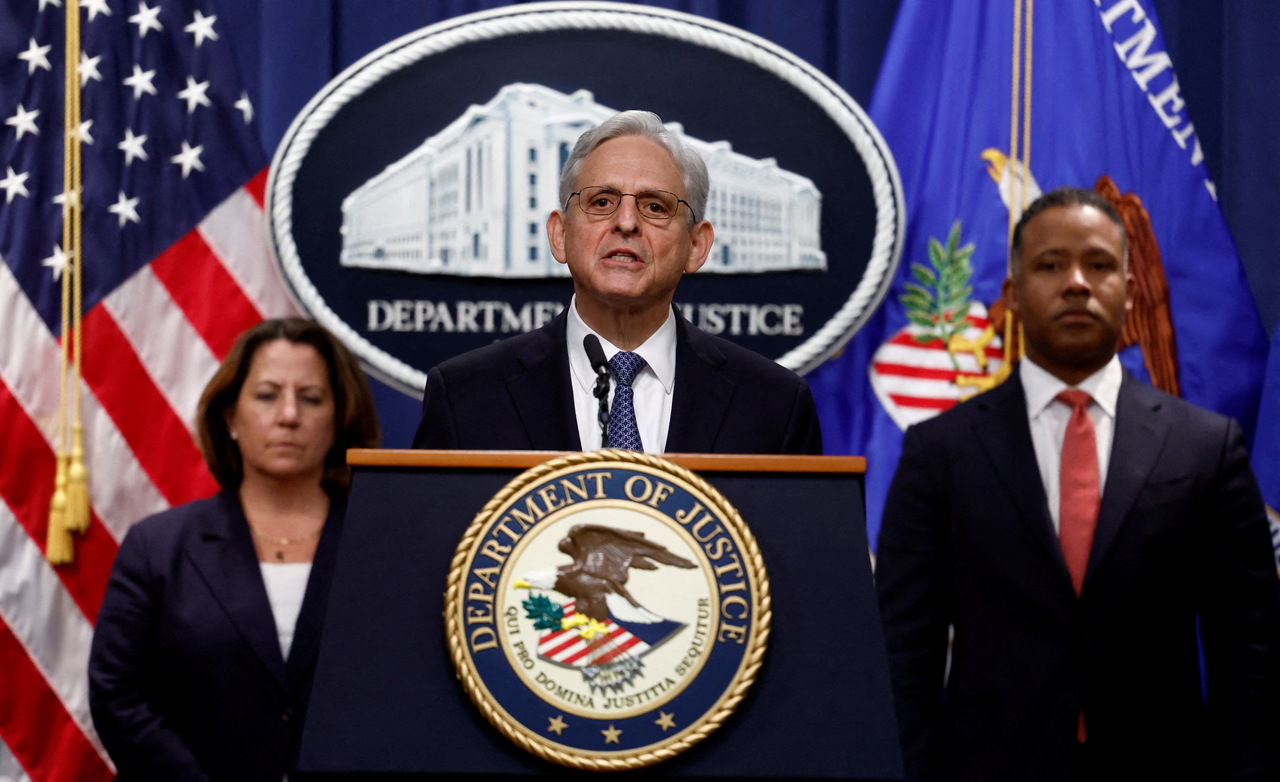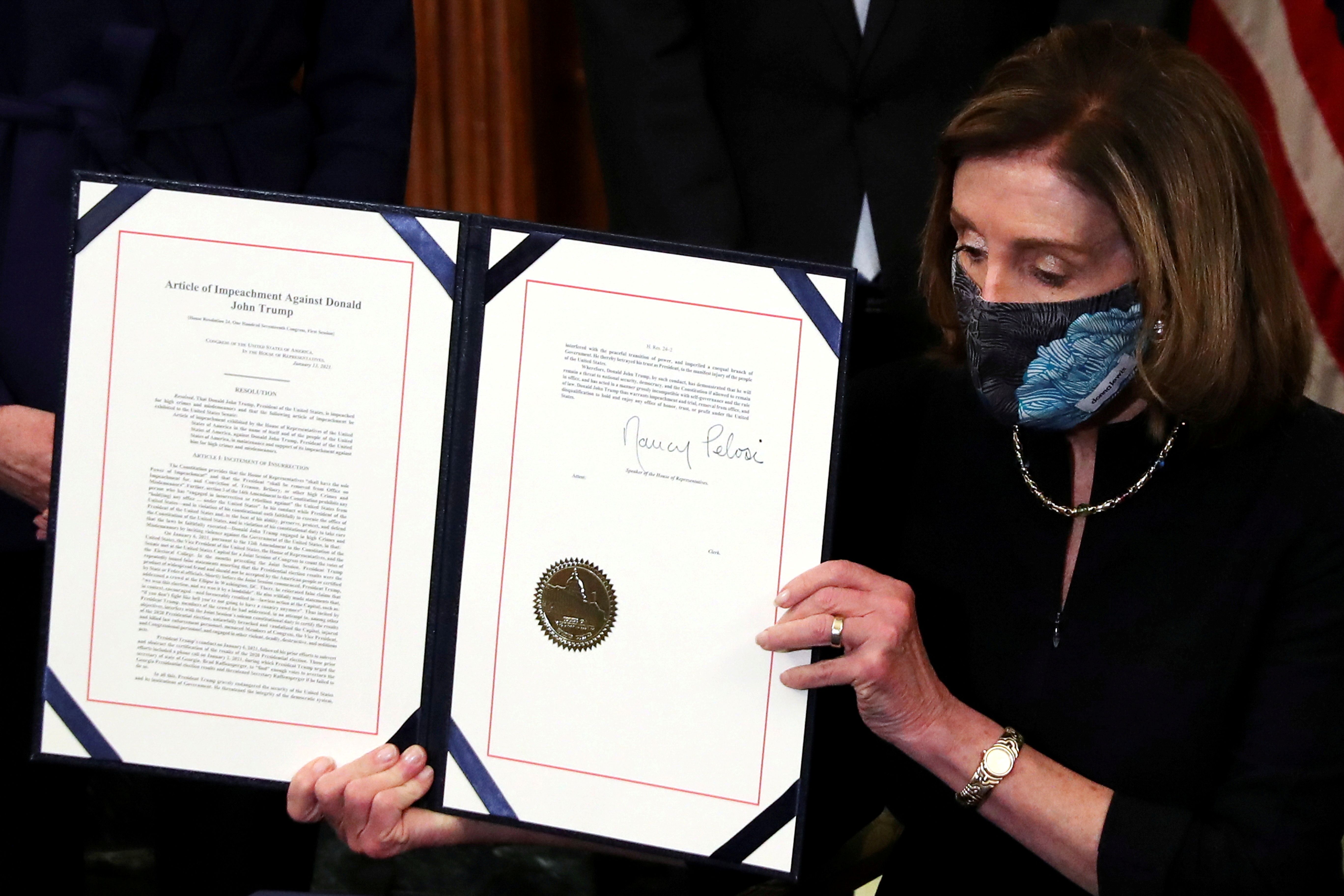Trump Envisions Political Comeback Amid a Special Counsel Investigation
Donald Trump’s decision to run in the presidential election in 2024 prompted the U.S. Attorney General to appoint a special counsel to ensure the independence and apolitical nature of the investigations into the storming of the Capitol on 6 January 2021 and the former president’s retention of classified government documents. Trump likely will use the investigations to try to bolster his image as an antisystem candidate. The investigations probably will not affect his political ambitions, but a possible indictment may hamper other Republican candidates and turn off voters.
 EVELYN HOCKSTEIN / Reuters / Forum
EVELYN HOCKSTEIN / Reuters / Forum
In the midterm elections to Congress, Republicans won the majority of seats in the House of Representatives but failed to retake the Senate from the control of the Democrats. Although some of the candidates supported by the former president did not win seats (including those who denied the 2020 election result), on 15 November Trump announced that he would run for president again and would seek the Republican Party nomination in 2024. This forced a reaction from the Department of Justice (DoJ), which is investigating the former president. On 18 November, U.S. Attorney General Merrick Garland (the head of the DoJ and appointed by President Joe Biden) designated Jack Smith as special counsel to oversee the department’s two open Trump investigations. From 2010 to 2015, Smith headed the Public Integrity Section in the Criminal Division of the DoJ, and from 2018 he was the Chief Prosecutor of the Kosovo Crimes Special Court at The Hague.
Special Counsel’s Office
The special counsel is formally an officer of the DoJ, subject to the internal regulations and the direct supervision of the Attorney General. However, as a non-administration official, he has more freedom and independence than ordinary federal prosecutors. Among other things, an Attorney General can overrule his decision (for example, to bring charges) only after the notification of Congress, and the special counsel can only be removed for misconduct. For these reasons, they are referred to as basically independent. Garland’s decision was aimed at weakening any accusation that the DoJ was pursuing political interests to discredit the likely opponent of the incumbent president.
Scope of the Investigations
Smith will take over the supervision of two criminal investigations by the DoJ. The first concerns Trump’s holding of documents from his presidency (including those marked “top secret”) at his private estate in Florida, some of which may have been illegal for him to keep. The National Archives, working with the DoJ, recovered some of the materials deemed missing in January, but investigators expressed concerns that some of the documents might still be in Trump’s possession. For this reason, in August the FBI, based on a judge’s order, secured almost 11,000 documents at his property.
The second investigation seeks to identify those involved in the disruption of the Congressional certification of the presidential election results because of the 6 January attack on the Capitol and the intrusion of rioters into the halls of Congress. In this case, the DoJ seeks to establish the role of Trump, his advisers, or any members of Congress who may have assisted the rioters as part of their demand for the non-recognition of the 2020 election result. However, this is just one strand of the DoJ investigation, and its takeover by the special counsel does not mean the end of the department’s other activities in the 6 January case, for example, in the matter of individuals who intruded into the building. Smith will potentially be able to use the materials gathered by the House Select Committee to Investigate the January 6th Attack on the United States Capitol, which is finishing its work and should submit a final report before the end of the year.
Impact on Trump’s Election Chances
Shortly after the midterm elections, Trump began to be criticised by some Republican Party politicians, as well as by commentators and right-wing media, as partly to blame for the failure of their candidates in the election. Trump’s support began in the primaries, and in the last weeks of the campaign he was publicly involved in rallies of candidates he supported. The appointment of a special counsel in cases involving Trump may affect his image and strategy in two ways. The appointment of a special counsel itself has provided the former president with one of his campaign’s main themes—that Trump is being targeted and that this is the latest political attack against him after Special Counsel Robert Mueller’s investigation, two impeachments, and attempts to remove him from office.
That the attorney general appointed Smith, who is seen as a no-nonsense prosecutor, is recognition of the seriousness of the potential charges against Trump that emerged from the accumulated evidence. To avoid strong criticism later, for example, if charges were levied against Trump, Garland decided to appoint the special counsel to strive for the greatest possible image of independence and credibility of the investigation. Trump could face charges under the Espionage Act and a penalty of up to 10 years in prison for holding the classified documents. In the U.S. constitution, however, there is no explicit prohibition against assuming the office of the president in connection to a criminal conviction. A greater threat to Trump’s political ambitions may be the investigation into the 6 January Capitol attack and the possible charge of provoking the insurrection. The 14th Amendment to the constitution, adopted during the Civil War era, prohibits individuals who have rebelled against the government from holding federal or state office. However, it does not directly refer to the office of the president, which makes it uncertain whether this ban would apply, leaving it presumably to the Supreme Court to decide.
Consequences for Biden and His Administration
After Attorney General Garland announced the decision, a White House spokeswoman said Smith’s appointment had not been consulted with Biden or his advisers. The nomination still will exacerbate the partisan division in Congress, hamper cooperation and influence the actions of the incoming majority Republicans in the House of Representatives. Republicans in general, including some also distancing themselves from Trump such as former Vice President Mike Pence, vehemently criticise the appointment of a special counsel. With majority control over the House, Republicans will direct the work of its committees, including the Judiciary, which may result in numerous subpoenas to both Smith and Garland to appear at hearings, and a motion to impeach the Attorney General is also possible. In addition, Republicans may seek to reduce the DoJ budget and block funds for the activities of the special counsel. The debate about the investigation may recur at times not directly related to it, threatening possible bipartisan legislative projects. In this context, it will make it even more difficult for Biden to pursue his policy agenda in cooperation with Congress, the House in particular, forcing him to conduct his policy primarily on the basis of executive orders.
Conclusions and Perspectives
The investigations against Trump may become one of the main topics of his presidential campaign and may help him rebuild his popularity within the party after the midterm losses. Trump will present the inquiries as another attack by the political elites, which will make it easier for him to gather the antisystem electorate around him, especially those buying into conspiracy theories. However, the possibility that charges against Trump could be filed during the campaign may result in some politicians, donors, and voters to focus their activities away from him and towards less-controversial candidates. Thus, the final impact of the investigations (depending on the weight and credibility of any charges) may prove negative for the former president.
The appointment of a special counsel has mainly domestic consequences. It will not affect the administration’s actions abroad, but it will affect cooperation in Congress, and in this context, may also influence U.S. foreign policy. Opposition to the special counsel’s investigation may lead to procedural blocks by Republicans in Congress (e.g., ambassador appointments or State and Defense department nominations), and its duration will make it difficult to reach compromises between the chambers in debates on bills, including those concerning foreign policy. However, this area is one of considerable freedom for the president in his actions, and even with the prospect that agreement with Congress will be difficult, the conflict over Smith’s appointment should not significantly affect Biden’s foreign policy actions.
If Trump wins in 2024, however, his distrust of Washington’s elites and administration may result in an attempt to radically depart from consensus on key U.S. foreign policy issues, including the rivalry with China and relations with Russia. Given his distrust of the elites, which may also apply to think-tanks, constituting part of the personnel base for the administration, Trump’s advisers could have less influence on the president’s final decisions than they did during his first term, which could result in even greater unpredictability of U.S. policies than before.





